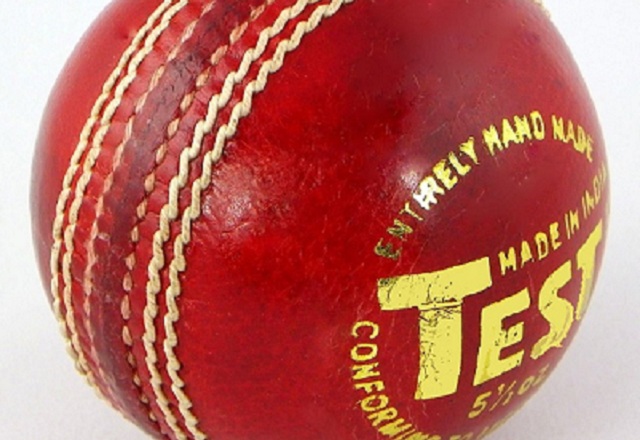EDITORIAL COMMENT: It’s so refreshing criminal defamation law is out

WE join the wider journalism fraternity in applauding the Constitutional Court for striking down Section 96 of the Criminal Law Codification and Reform Act. The piece of legislation was outdated, uncivilised and archaic as it criminalised the practice of journalism and we agree with the full bench of the highest court in the land that criminal defamation has no place in a modern society.
Zimbabwe has shown the world that it is a free and democratic country which upholds the basic tenets of good governance and freedom of expression by outlawing criminal defamation. Chief Justice Godfrey Chidyausiku, sitting with eight other judges, on Wednesday granted an application by the Media Institute of Southern Africa (Zimbabwe Chapter) and ruled that the law has since its promulgation in 2004, been invalid.
After the declaration by the Constitutional Court in February last year that criminal defamation was not valid in terms of the old Constitution, MISA filed an application seeking clarification on the correct status of the law in terms of the new Constitution. The Constitutional Court held that the 2015 judgment issued in the criminal defamation challenge by former Standard Newspaper editor Nevanji Madanhire was binding even in terms of the new Constitution.
“It is declared that: ‘Having been declared as inconsistent with Section 20(1) of the former Constitution in the judgment of this Honourable Court in Madanhire and Another Versus the Attorney General CCZ2/15, Section 96 of the Criminal Law (Codification and Reform) Act (Chapter 9:23) was not an existing law as defined in Section 1 of the 6th Schedule to the Constitution of Zimbabwe.
“Accordingly, for the avoidance of doubt, Section 96 of the Criminal Law (Codification and Reform) Act is void and not part of the said enactment,” the court ruled. The judgment was granted following concessions by a chief law officer in the AG’s Office Venrandah Munyoro that criminal defamation was indeed a dead and invalid law. Advocate Thembinkosi Magwaliba, instructed by Tawanda Nyamasoka of Atherstone and Cook Legal Practitioners, appeared for the journalists, while Munyoro represented the AG and the Minister of Justice, Legal and Parliamentary Affairs.
We welcome the clarification by the Constitutional court and hope that action will soon be taken to align the new dispensation with the Constitution. The judgment has certainly removed the uncertainty about the existence of the crime of criminal defamation. It has also put finality to the confusion about the status of the law in the new constitution. According to the Constitutional court judgment, it is invalid and has been dead since 2004 hence no one should be arrested in terms of that law.
Since 2014, the Government has consistently voiced its opposition to the law and campaigned for its removal from the country’s statutes. Following a Constitutional Court ruling which incorrectly stated that its celebrated judgment of 2014 only ruled the law to be in violation of the old constitution and not the new supreme law, Wednesday’s judgment put the matter to rest.
In February last year, the highest court in the land, through Justice Bharat Patel, issued a declaratory order that agreed with Justice, Legal and parliamentary Affairs Minister Emmerson Mnangagwa’s submissions that the judgment in the case of Standard journalists Nevanji Madanhire and Nqaba Matshazi was made only in relation to the old constitution.
The judgment in question was issued in a case in which Madanhire and reporter Matshazi, who were charged with criminally defaming Green Card chairperson, Munyaradzi Kereke, decided to contest the law’s constitutionality. In July 2014, the Constitutional Court unanimously ruled that Section 96 of the Criminal Law (Codification and Reform) Act must be struck off the statutes because it was not a justifiable law in a democratic society like Zimbabwe. Professor Jonathan Moyo, then Minister of Media, Information and Broadcasting Services, said criminal defamation was uncivilised.
“I believe that in the same way one cannot subscribe to the right to life and support the death penalty without suffering a fatal contradiction, one cannot subscribe to freedom of expression and in the same vein support criminal defamation,” said Prof Moyo.
“In my respectful consideration, criminal defamation is not only unconstitutional, it is also uncivilised.”
The Minister said it can’t be constitutionally correct to say that, although criminal defamation violated the former Constitution right from the beginning or from the time it was enacted into law, it is nevertheless still valid as an offence because it has not been tested against the provisions of the new Constitution.
“Such an argument is wholly untenable because it is tantamount to saying that the new Constitution has the force and effect of resurrecting dead laws. A new constitution does not and cannot make law,” Prof Moyo said.
We concur because only Parliament can make laws with the courts only interpreting them. The Constitutional Court is therefore correct to invalidate the law of criminal defamation.








Comments